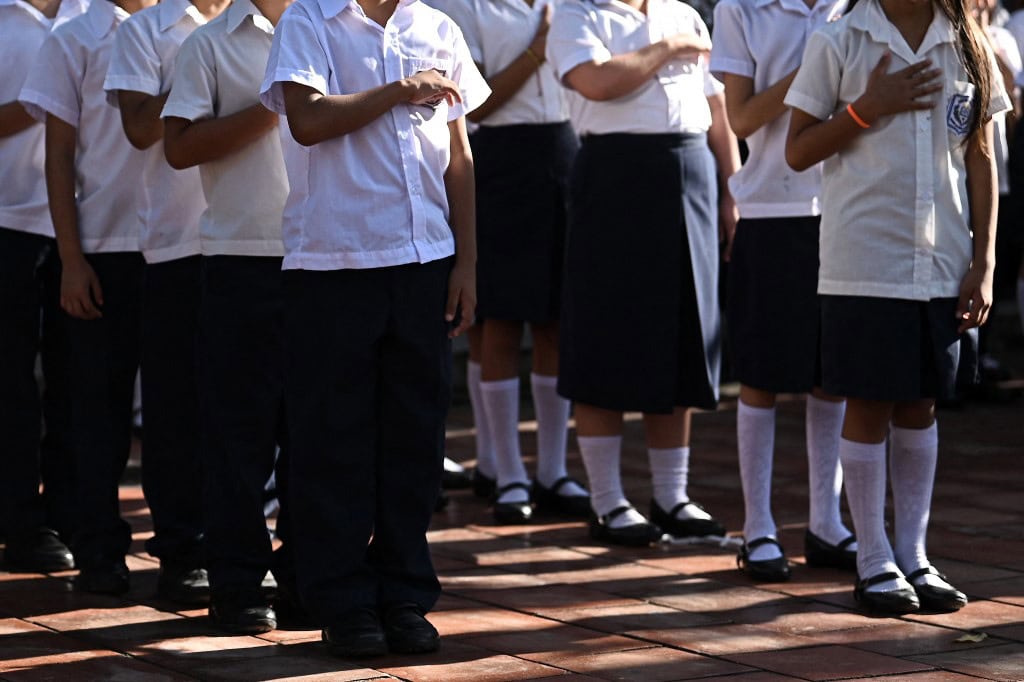El Salvador’s President Nayib Bukele has taken another step to reshape the country’s education system. On Thursday, he declared a complete ban on what he calls “inclusive language” across all public schools. This move targets terms that alter traditional Spanish to promote gender neutrality, such as “amigue,” “compañere,” “niñe,” “todos y todas,” “alumn@,” “jóvenxs,” and “nosotrxs.”
Bukele made the announcement on X, where he shared a directive from Education Minister Karla Trigueros. The memo instructs directors of the nation’s 5,100 public schools to enforce the rule immediately. It labels these terms as “linguistic deformations” tied to gender ideology and bans them from all classrooms, materials, and official documents provided by the Education Ministry.
As of today, the so-called “inclusive language” is prohibited in all public educational centers in our country. https://t.co/4JXb9ez3yC
— Nayib Bukele (@nayibbukele) October 3, 2025
The goal, according to the directive, is to promote the correct use of Spanish and shield students from what officials describe as ideological or external influences that could disrupt their overall growth. This applies not just to teaching but also to books, content, and even administrative offices under the ministry.
This ban builds on recent changes aimed at increasing order in schools. In August, the government rolled out stricter discipline guidelines, and in September, it added rules on courtesy, requiring students to greet teachers when entering class and use “please” for requests. Public schools already enforce uniform standards for clothing and haircuts, which some see as part of a broader push for structure.
Not everyone agrees with the approach. The Salvadoran Teachers’ Front union has criticized these measures, calling them a form of “militarization” that turns schools into rigid environments rather than places for open learning.
Bukele’s stance on gender-related issues has shifted over time. Early in his presidency, which began in 2019, he voiced support for LGBTI rights. But in 2024, he directed the Education Ministry to strip out any elements of gender perspective from textbooks and guides. This latest ban aligns with that decision, focusing on traditional language norms.
Despite the controversy, Bukele remains widely supported in El Salvador, largely due to his aggressive campaign against gangs. His “war” on crime has dramatically lowered violence rates, with thousands arrested in mass operations. However, human rights organizations have raised alarms over potential abuses, claiming that many innocent people have ended up in prison amid the crackdown.
The ban has sparked reactions beyond El Salvador’s borders, with some praising it as a stand against modern linguistic trends and others viewing it as a rollback on progressive efforts. For now, it sets a clear line in the country’s schools: stick to standard Spanish, no exceptions.
As a neighbor in Central America, Costa Rica watches these developments closely, given our shared regional challenges in education and security. While El Salvador pushes for these reforms, it highlights ongoing debates about how governments balance tradition, ideology, and student well-being.






